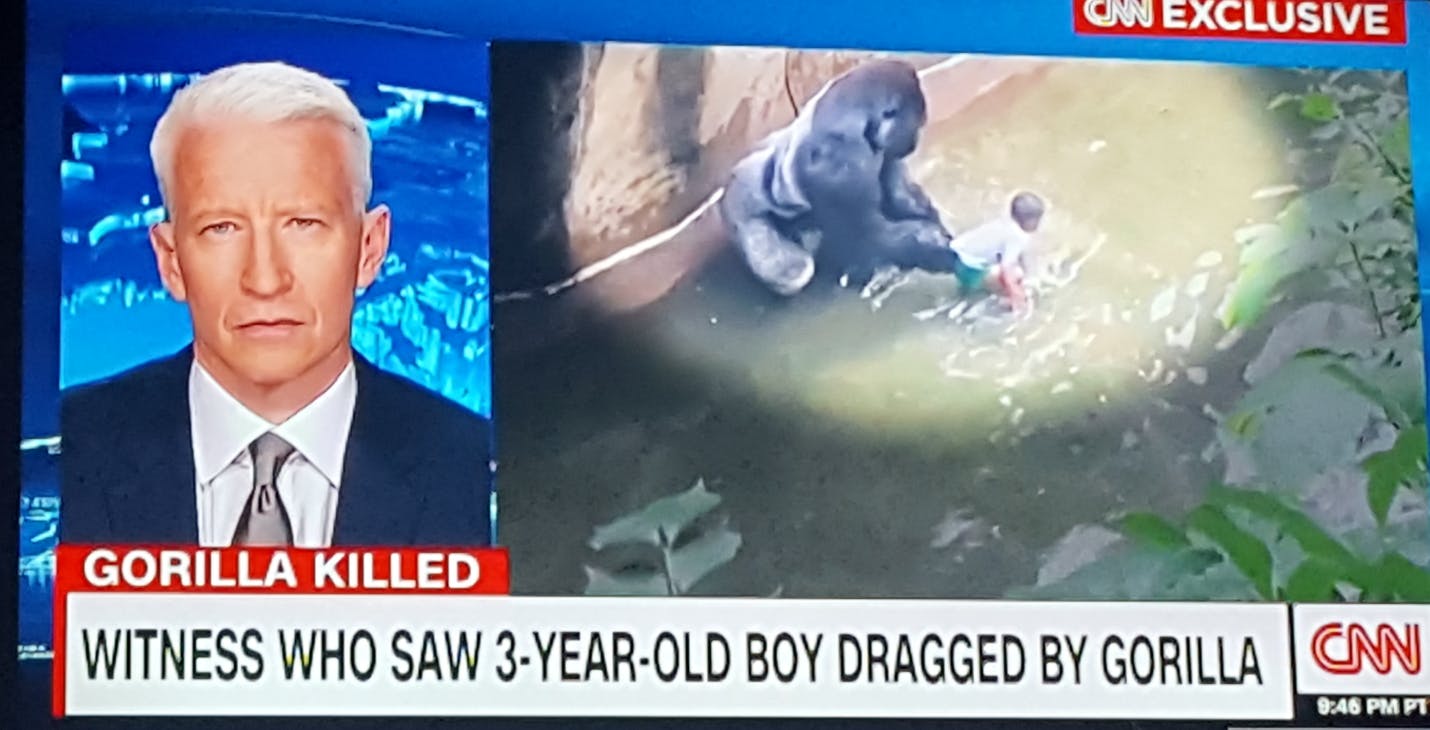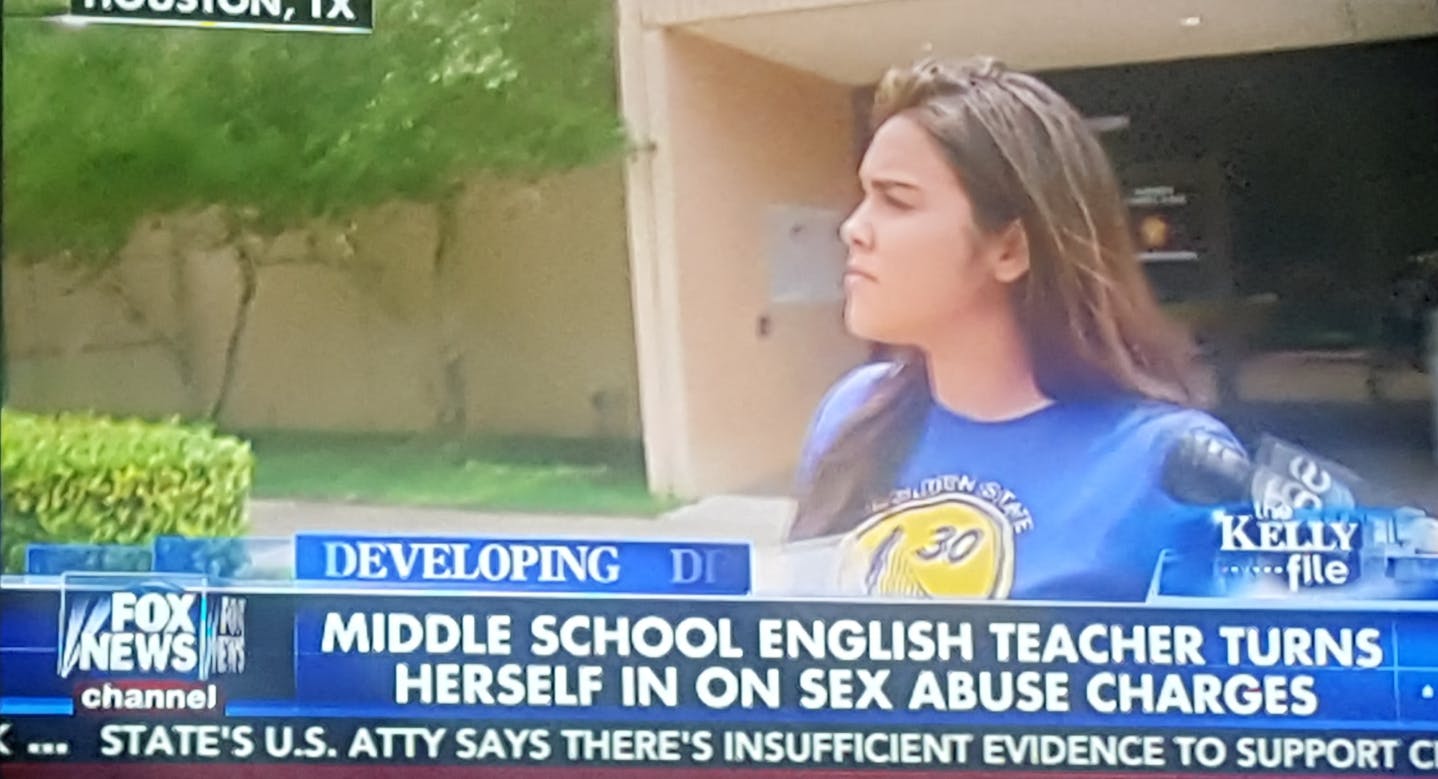Are we at war or what?
Despite an increasing number of U.S. boots on the ground and bombs in the air throughout the Middle East and around the world, America’s biggest cable news networks have largely stayed quiet, shifting their attention away from the world’s most deadly wars.
And online news and social media may be to blame.
For millions of Americans, the idea of their country not at war is something they’ve only read about in the history books. It’s been 15 years since 9/11, and the U.S. military remains engaged in Afghanistan and Iraq, among other deadly war zones. Some 60 million Americans have been born since that day.
Today’s conflicts, waged against enemies like the Taliban and Islamic State, involve thousands of airstrikes, hundreds of thousands of deaths, and, increasingly, U.S. soldiers back in the thick of the fighting, directly engaged in battle, being injured, and even sometimes being killed.
The U.S. is dropping so many bombs in the Middle East (plus in Africa and elsewhere in Asia) these days that the Pentagon is struggling to keep up its supply of deadly weapons because the American military is “expending munitions faster than we can replenish them.”
But the country’s big three cable news networks—CNN, Fox News, and MSNBC—have in large part stayed quiet on the U.S. military’s ongoing fights in the Middle East despite heavy American involvement in every one of humanity’s deadliest wars.
The top stories on Wednesday night’s prime time news shows included a boy and a gorilla in the Cincinnati Zoo and a teacher–student sexual affair. This included a few 15-minute stretches where CNN focused on nothing but Harambe the gorilla.
On the day the Cincinnati Zoo incident happened, CNN stayed with the story over nearly an hour. That’s by far longer than any reporting the network did about America’s ongoing wars on the same day.
According to transcripts from CNN and Fox News, the Fallujah offensive earned just 17 percent of the on-screen coverage that the Cincinnati Zoo gorilla received—even though Iraqi forces had just entered the city for the first time in over two years.
The battle in Fallujah has earned more than 30 seconds of TV time exactly four times from the three major cable news channels in the last week. The entire country of Syria, where American Special Forces are currently fighting, earned even less air time.
While CNN dedicated over five times the television to the Cincinnati gorilla, the story rarely advanced or changed. Instead, CNN aired virtually the same shocked discussion about parenting and gorilla behavior and the same video, on a loop, often several times in the same hour.
In a press conference with Republican presumptive presidential nominee Donald Trump—who has been notoriously short on specifics when it comes to U.S. foreign policy—reporters asked Trump about the gorilla but not about American wars in Syria and Iraq.
“I think it’s a very tough call,” Trump said. “It was amazing because there were moments with the gorilla, the way he held that child, it was almost like a mother holding a baby. Looked so beautiful and calm.”
OK, but what about the U.S. troops now fighting near the Islamic State’s capital in Syria? Does Trump still want to deploy 30,000 U.S. troops to fight an expanded war in Syria?
Over the course of the day, CNN devoted several hours of programming to Egypt Air flight 804, which crashed last month for reasons that remain unknown.
Much of CNN’s reporting was dedicated almost entirely to a crash course in how airplane black boxes work, but it gave little or no time to the wars happening next door to Egypt that may have had direct connections to Flight 804’s demise.
Even though one of the main hypotheses for Flight 804’s fate is that terrorists brought it down, CNN’s prime time programming did not once during this segment report on the wars the U.S. is engaged in against the Islamic State and Al Qaeda, two prime suspects in Flight 804’s crash.
Viewers came away knowing that airplane black boxes can record two hours of data. Then the coverage went back to the gorilla.
The audience heard nothing, however, about the ongoing fight in Fallujah, where tens of thousands of Iraqi civilians are trapped inside a besieged city that was the scene for the deadliest battle of the last decade.
There was nothing about the numerous deadly bombings rocking Baghdad on that very day. Three attacks took place in the Iraqi capital on Wednesday alone, while dozens more died in fighting around the country.
We heard nothing said about this week’s bloody battles surrounding Raqqa, the Islamic State’s de facto capital inside Syria, and the shifting American alliances that have characterized the anti-Islamic State coalition’s offensive.
Even as a unprecedented wave of video and witness testimony pours forth from war-torn countries, American television is mostly mum. CNN mainly looped between Trump and Harambe.
Cable television coverage of the Islamic State flares during events like terrorist attacks in the West. But even during some of the most crucial battles in Syria and Iraq’s wars, America’s most-watched news shows offered nothing on the country’s wars.
Even on the eve of a major foreign policy speech by likely Democratic presidential nominee Hillary Clinton, none of the networks saw fit to address any of America’s major foreign policy questions.
It may be that, after 15 years, war makes for bad television. Islamic State leader Abu Bakr al-Baghdadi can’t compete with characters like Clinton and Trump, never mind Harambe.
Earlier this year, CNN president Jeff Zucker outlined a profound shift in the way cable news works that may explain the coverage choices.
“It used to be CNN and other television outlets were founded on this idea of a news wheel. You give us 22 minutes and we’ll give you the world,” CNN president Jeff Zucker told the Guardian in late April. “But that’s not the way people consume news and information any more. So on television we are going to go much deeper on the one, two, or three stories of real significance or interest that day, and we are going to satisfy all your news needs and questions digitally.”
Zucker’s strategy makes sense. According to a May 26 Pew Research study, 62 percent of American adults get their news online, mostly from Facebook. But cable news remains a powerful force for news, especially among Americans over the age of 29.
This is not to say that CNN, Fox News, and MSNBC shows never reported on serious news stories. To pick just a few examples from Wednesday night, Fox News looked at Chicago’s rising murder rate, MSNBC spotlighted barbs traded between President Barack Obama and Trump, and CNN held a round table about Trump University, the candidate’s defunct business that is currently at the center of a civil fraud lawsuit in New York and two class-action suits in California.
But when it came to the dropping of bombs, there was nearly silence.




